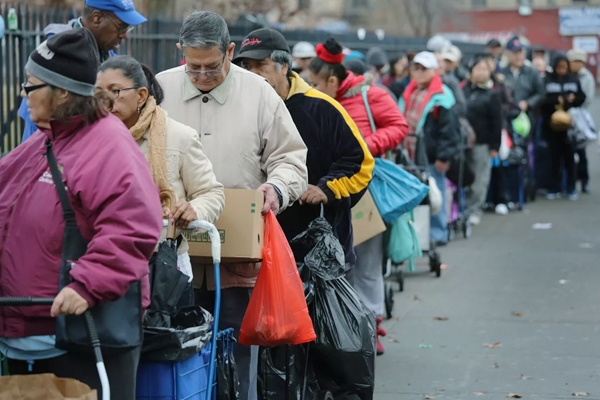
(Image source from: Vox)
The federal government shutdown, the longest one in the United States history, is hitting American Indians compared to other people, with jobs on hold and cut in critical funds to some of the nation’s poorest communities.
Virtually all the funding, including health services, education, and infrastructure has been cut since the shut down began December 22, leaving Indian communities to dip into reserves or make cuts.
"We are in a cash flow crisis," Darrell Seki, chairman of the Red Lake Nation in northern Minnesota, said Monday. "But we are doing everything we can not lay off people and keep up services."
In addition, Indian reservations have a higher proportion of federal employees than most parts of the country except for the Washington, D.C., area, making the lack of income resulting from the layoff of employees an intense economic problem.
Related content: Millions to Lose Food Assistance If Government Shutdown Lasts
In the Dakotas and other Western states, the income has been cut to more than 1,000 people, leading to a ripple in spending and consumption that is affecting thousands more.
"People are suffering," Patrice Kunesh, director of the Center for Indian Country Development at the Minneapolis Federal Reserve, which has been studying the effects across the country, said.
"Many of the furloughed employees are one-income families," she added. "Small businesses that depend on tribal spending are having a hard time. Even the relief programs are feeling pain."
Scores of Indians depend on the federal Indian Health Service for essential needs and a special banking system that processes land leases and some other payments. The poverty-stricken depend on a federal food distribution system.
All of those services - along with the lead agency that deals with Indians, the Bureau of Indian Affairs (BIA) - have been closed by the shutdown.
"The BIA is AWOL," Seki said. He said he would like to see President Donald Trump, House Speaker Nancy Pelosi and Senate leader Mitch McConnell visit an Indian community to see the effects firsthand.
Red Lake Nation suspended construction of two fire halls and a dialysis treatment center while it waits for the federal government to reopen, but it has maintained health services, Seki said.
The Bureau of Indian Education and most accompanying schools have remained open since that agency's funding is scheduled differently. That bureau sent funds to schools weeks or months ago for today's operations.
Kunesh said fund transfers are staggered, however, and that some Indian schools that ran out of federal funds may have to be supported locally until the shutdown ends.
On Friday, the Federation of Indian Service Employees filed suit against the government for failing to pay people who were ordered to keep working throughout the shutdown.
-Sowmya Sangam
















